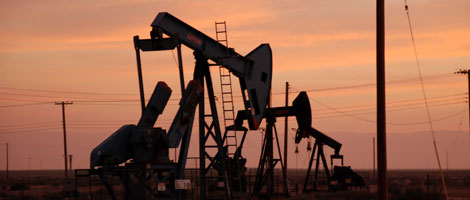Searching for a case study of why the Saudi Arabia-Russia price war is freaking out Wall Street and the financial markets?
Look no further than Occidental Petroleum (OXY).
Yesterday the company cut its dividend for the first time in 30 years. And not just by a nickel or two. Try an 86% cut. From 79 cents per share each quarter to just 11 cents.
Why?
To cover the debt the company took on in its $37 billion takeover of Anadarko Petroleum. It’s the reason for the cut in the dividend that is a thrust to the vitals of financial markets. Every trader and institutional investor in oil stocks can name a half dozen companies that are as leveraged as Occidental. Most oil shale producers have been running on debt rather than profits since $60 a barrel oil. U.S. crude benchmark West Texas Intermediate rallied today but the price is still just $34.85 a barrel. And with Saudi Arabia and Russia pumping as much il as they can in an effort to drive some producers, any producers, out of the market, a disastrous break below $30 for more than a day or two is a definite possibility. (Oil futures briefly dipped to $27.34 on Monday, March 9.)
Occidental CEO Vicki Hollub vowed to protect the company’s dividend less than two weeks ago, calling it “one of the defining characteristics of our company.” and vowed to protect it. The last time Occidental reduced payouts was 1990, after Iraqi leader Saddam Hussein’s invasion of Kuwait sent oil markets tumbling.
Occidental also cut its capital spending budget for the year by 32% to $3.6 billion.
The reduced dividend and the cuts to capital spending will enable Occidental to break even on a csh basis if West Texas Intermediate trades in the low $30-a barrel range. Of course, there’s no guarantee that oil will trade that high.
Occidental has $39 billion in long-term debt, making it one of the most-leverage major oil producers. The company was counting on selling abut $15 billion in assets by the middle 2020 in order to reduce that debt. That looks unlikely right now.
ExxonMobil (XOM) and Chevron (CVX) have announced reviews of their own capital spending plans with an eye to reducing spending.


